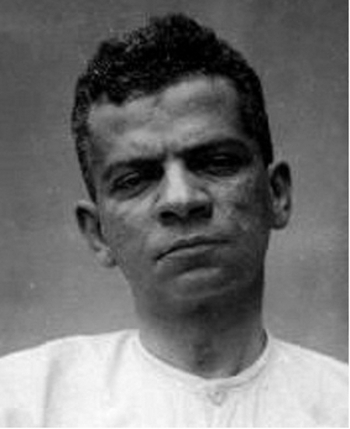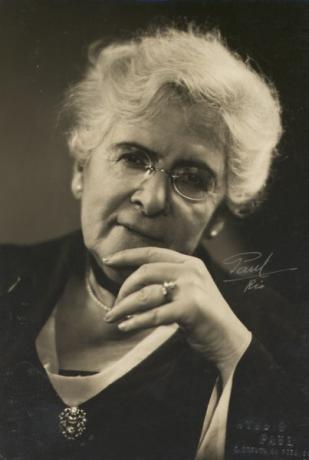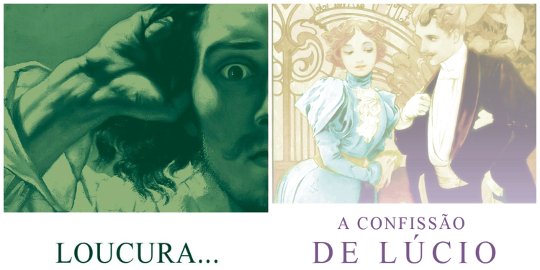THE chronic is among the textual genres most popular among readers, and this does not happen by chance: in addition to being a genre marked by brevity, has its circulation democratized in the pages of newspapers, its main means of Publication. The literary chronicle, unlike the journalistic chronicle, abuses literature's own resources without ever losing its light and prosaic essence that pleases readers so much.
Many were the writers of our literature who saw the chronic an opportunity to write literature and, at the same time, denounce the customs and ills of Brazilian society. At the beginning of the 20th century, names like Machado de Assis, Lima Barreto and João do Rio became famous for their acidic texts and little complacent with the Brazilian society (especially the Rio society) at the time, combining the “complaint text” with elements of the literature. Therefore, by making the chronicle genre even richer and more interesting, these authors are among the best Brazilian chroniclers of the beginning of the 20th century.
So that you can learn a little more about the great chroniclers of the beginning of the 20th century, Brasil Escola brings you the main literary aspects of some of its greatest representatives, as well as excerpts from chronicles that have as a common feature is the keen eye on the social and cultural panorama of that Brazil which, ironically, still has similarities with our Brazil contemporary. Good studies, good reading!
Machado de Assis

Machado de Assis was born in Rio de Janeiro, on June 21, 1839. He died in his hometown on September 29, 1908, aged 69
Machado de Assis needs no introduction. The “Witch of Cosme Velho”, nickname created by the equally brilliant Carlos Drummond de Andrade, is among the greatest chroniclers of his time. It was not enough to be a novelist and short story writer of enviable skill, Machado also composed, through his chronicles, an interesting picture of Rio de Janeiro society at the beginning of the 20th century. Through the fine irony that was so peculiar to him, he addressed in his chronicles the social ills and political excesses of his time.
"African wars, Asian rebellions, the fall of the French cabinet, political unrest, the proposed suppression of the senate, the Egyptian box, socialism, anarchy, the crisis European, which makes the ground shake, and only doesn't explode because nature, my friend, hates this verb, but it will certainly explode before the end of the century, which matters to me all this? What do I care that, on the island of Crete, Christians and Muslims kill each other, according to the 25 telegrams? And the agreement, which the day before yesterday was made between Chileans and Argentines, and already yesterday it was no longer done, what do I have with this blood and what is going to happen?" (The Week, April 26, 1896).
Lima Barreto

Lima Barreto was born in Rio de Janeiro, on May 13, 1881. He died on November 1, 1922, aged 41
The denunciation of social ills is one of the main characteristics of the work of Lima Barreto. The writer gave such importance to the theme that he was accused by literary critics of being an author pamphleteer and without any major literary gifts, given his concern in photographing with exact colors the hardships of his time. Lima Barreto, through his colloquial and direct style, criticized, above all, the social inequalities of the 19th and 20th centuries. Those who believe that, using language sparingly, the writer would also do so in the content of his chronicles is wrong.
Do not stop now... There's more after the advertising ;)
“There is no doubt that Brazil is a very rich country. We who live in it; we do not realize this very well, and even, on the contrary, we suppose it to be very poor, because all the time and the all the time, we are seeing the government complain that it does not do this or does not do that for lack of budget. In the city streets, even in the most central ones, walk little strays, attending the dangerous university of the calariça of the gutters, to which the government does not assign, and puts them in a nursing home, in any professional college, because there is no money, there is no cash. It's rich Brazil...
There are appalling epidemics, killing and sickening thousands of people, which show the lack of hospitals in the city, the poor location of existing ones. The construction of other well situated ones is requested; and the government responds that it cannot do it because it has no funds, no money. And Brazil is a rich country (...)”. (Rich Country, Marginalia, 8 May 1920).
João do Rio

João do Rio was born on August 5, 1881, in Rio de Janeiro. He died in the same city, on June 23, 1921
João do Rio is one of the pseudonyms of João Paulo Emílio Cristóvão dos Santos Coelho Barreto, considered by historiography as the greatest journalist of his time. In addition to being a journalist, João do Rio was a writer and precursor of the modern social chronicle: his work was produced by from the direct observation of the life and language of different social groups in Rio de Janeiro at the beginning of the 20th century. A dear and popular figure, João easily moved between the popular and marginalized, producing chronicles that investigated the lives of forgotten people with great realism and sensitivity.
“I love the street. This feeling of an all intimate nature would not be revealed to you if I did not judge, and had no reason to judge, that this love so absolute and so exaggerated is shared by all of you. We are brothers, we feel alike and alike; in cities, villages, towns, not because we suffer, with the pain and displeasures, the law and the police, but because we unite, level and unite the love of the street. This is the imperturbable and indissoluble feeling, the only one that, like life itself, resists age and age. Everything changes, everything varies—love, hate, selfishness. Today the laughter is more bitter, the irony more painful. Centuries pass, slip by, carrying the futile things and the remarkable events. The only thing that persists and remains, a legacy of growing generations, is the love of the street (...)”. (The street, in “The enchanting soul of the streets”).
By Luana Castro
Graduated in Letters



